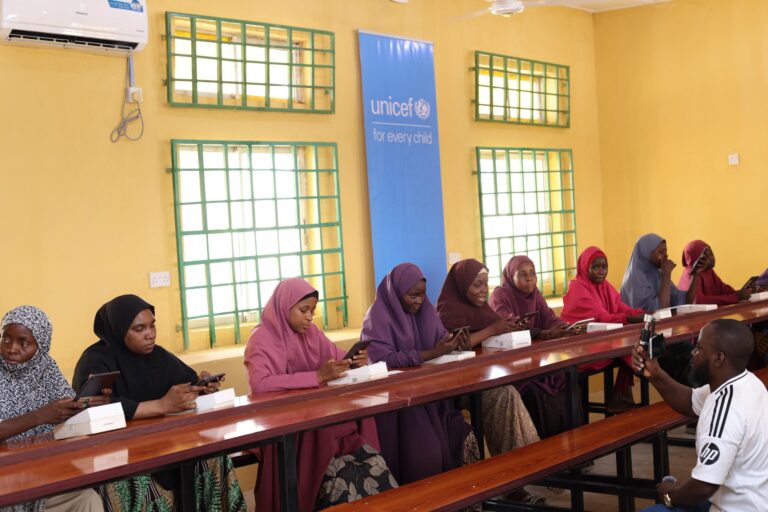UNICEF, Sokoto Govt. Launch Digital Skills Training Centre for Almajiri and Out-of-School Children
Education
By Habibu Harisu
The Sokoto State Government has on Tuesday inaugurated a digital skills training centre to empower Almajiri children and out-of-school adolescent girls in the state.
The News Agency of Nigeria (NAN) reports that the initiative is in collaboration with the United Nations Children’s Fund (UNICEF), and supported by ELEVA Foundation.
Gov. Ahmad Aliyu in his remarks during the inauguration said that the effort was a significant one to tackle educational disparity and promote digital inclusion among residents.
Aliyua also said that the initiative tagged ”Digital Village” was designed to equip underserved youths with essential digital skills, as well as prepare them for opportunities in an increasingly technology-driven world.
He expressed gratitude to UNICEF and ELEVA Foundation for its ongoing support, particularly in education and nutrition in the state.
He reaffirmed his administration’s commitment to uplifting vulnerable groups and ensuring inclusive development across the state.
Speaking at the event, the Sultan of Sokoto, Alhaji Sa’ad Abubakar, represented by the District Head of Gagi, Alhaji Sani Jabi, lauded the governor’s administration for the visionary approach and development-focused leadership.
Abubakar reaffirmed the traditional institution’s unwavering support for the governor’s Smart Agenda, a comprehensive nine-point development plan.
UNICEF Nigeria Representative, Ms Cristian Munduate, described the Digital Village as a structured learning hub, offering training sessions three times a week.
”By equipping these underserved children with digital skills, we are building their capacity to thrive in a tech-driven world,” she said.
Munduate, who was represented by Micheal Juma, UNICEF Chief of Field Office in Sokoto, said the digital village was designed to improve access to quality learning opportunities by leveraging technological literacy and youth innovation trough structured training sessions.
She said the centre targets 250 children in first cohort, with local languages, foundation literacy, vocational, numeracy and livelihood skills tailored into the curriculum.
According to her, the village will serve as safe space for mentorship and life skills development toward boosting economic independence and social inclusion.
”It will also serve as pivotal move towards empowering vulnerable youth with essential digital and vocational skills,” she added.
The News Agency of Nigeria (NAN) reports that stakeholders as well as various leaders in the state who were present at the event pledged their commitments to the success of the centre. (NAN)(www.nannews.ng)
Edited by Deborah Coker





